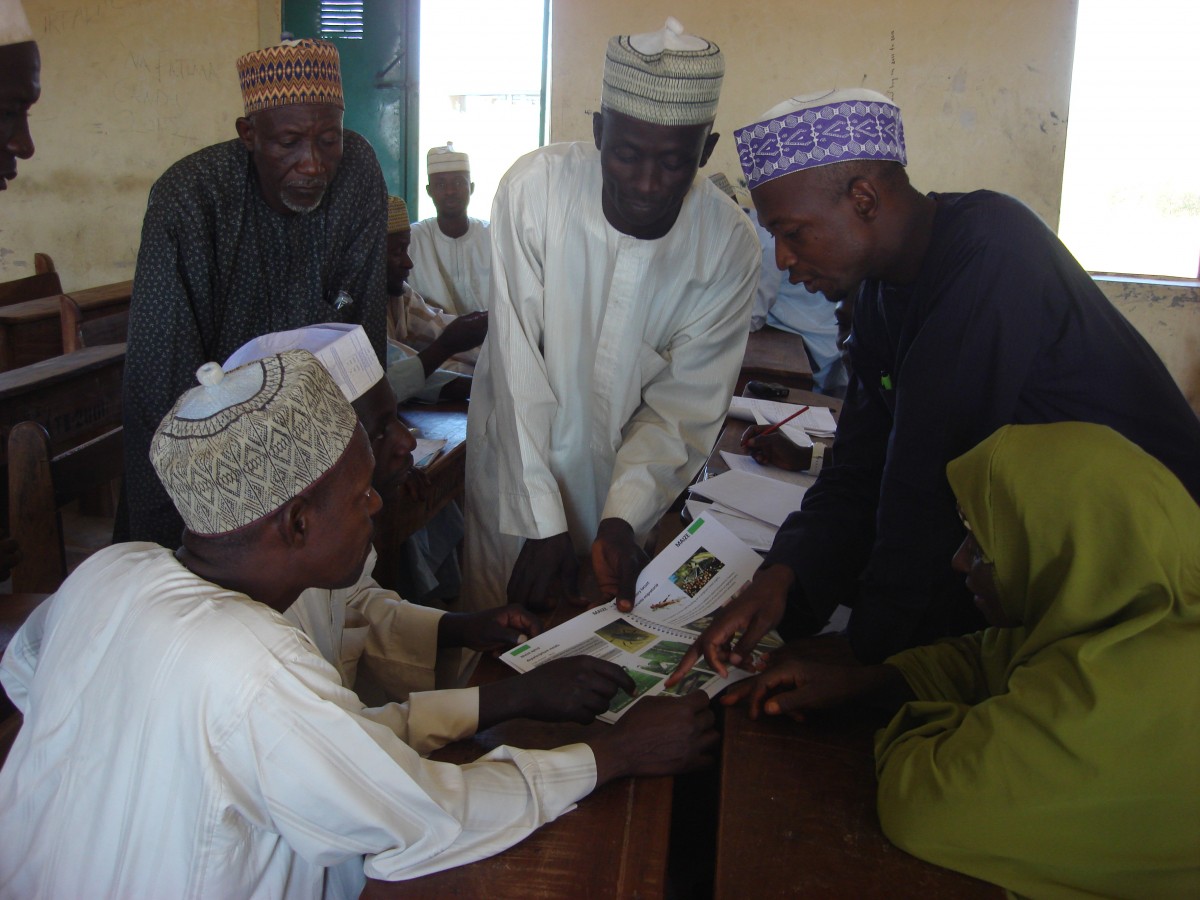There is a laborer among us that is quietly contributing $18 trillion a year to the global economy, yet has gone unnoticed by the majority of its beneficiaries. Services provided by ecosystems, such as natural water filtration by roots and rocks, the air cleaned by trees, the habitats that nurture the fish we eat or the insects that pollinate our crops, receive little notice for their support to human civilization. This often leads to poor management. In a new study published in the journal Ecosystem Services, our team documented some important trends in perceptions of ecosystem services across Nigeria.
Sustainable natural resource management and land use policies increasingly look to localized perceptions of ecosystem services for inspiration. Considering context and landscape is not merely beneficial, but should be a core component of policy development moving forward to support the Sustainable Development Goals (SDGs).
Our assessment highlights the diverse ways land is used by small-scale farmers to maximize a wide range of ecosystem services, built on their traditional knowledge of land use and shaped by social norms that govern land use rights. We explored potentially influential factors and applied socio-economic methods, from in-depth interviews with rural residents to multiple regression equations, to understand local people’s awareness and perceptions of ecosystem services across rural communities in Nigeria.
Experience and context matter
Changes in land use can profoundly alter landscape patterns and ecosystem functions, which compromises the supply of ecosystem services. Forests and other undeveloped areas are under considerable pressure from expansion of cultivated and residential land.
Diverse land use in agrarian landscapes not only fosters biodiversity, but also provides potential ecosystem services such as natural pest suppression, soil conservation, nutrient retention and crop pollination. We found that villages exposed to forest, lowland floodplains or unused land were generally more conscious of the benefits provided by ecosystem services. People were collectively aware of provisioning services provided by ecosystems, such as crops, biofuel, fresh water, natural medicine, wildlife, and several cultural services.
The majority of villages we surveyed also appreciate the spiritual value of the surrounding natural environments; to varying degrees, this appreciation is reflected by how they identify specific ecosystem services in relation to land use.
Unfortunately, people were generally unaware of regulating and supporting services, including pollinators and natural enemies of pests that are susceptible to chemical pesticides and rely on natural habitats in the landscape. Although modern agricultural aids have been successful in increasing food production around the globe, it has also caused extensive environmental damage and land degradation. The first step towards protecting these vital resources is to spread awareness of specific ecosystem services in rural communities.
Entry point for intervention
Agricultural extension scarcely affected respondents’ levels of ecosystem services awareness in our study, pointing to a crucial entry point for intervention. Extension services in Nigeria have been narrowly focused on promoting seeds and chemical fertilizers. A range of issues related to these external inputs, such as their unintended consequences and proper use and disposal, appear to receive comparatively little attention. Furthermore, natural yield enhancers, such as pest management and pollination, have rarely been covered.
Advisory services and support programs should promote ecosystem service-based approaches for sustainable agriculture and natural resource management. This should incorporate management concepts that better harness ecosystem services that support agriculture, wellbeing and livelihoods, while minimizing the unintended consequences of chemical input practices and resource use.
Managing for ecosystem services, which link human well-being to conservation outcomes, is essential for achieving the SDGs, as Nigeria has endorsed. As Nigeria’s Road to SDG-Country Transition Strategy points out, local government action is pivotal to achieving the SDGs because it is the only tier of government that can feasibly understand, monitor, and form a better understanding of land use ecosystem services.
Wei Zhang is a Research Fellow in IFPRI’s Environment and Production Technology Division (EPTD). This post first appeared on the CGIAR Research Program on Water, Land and Ecosystems Thrive Blog.







